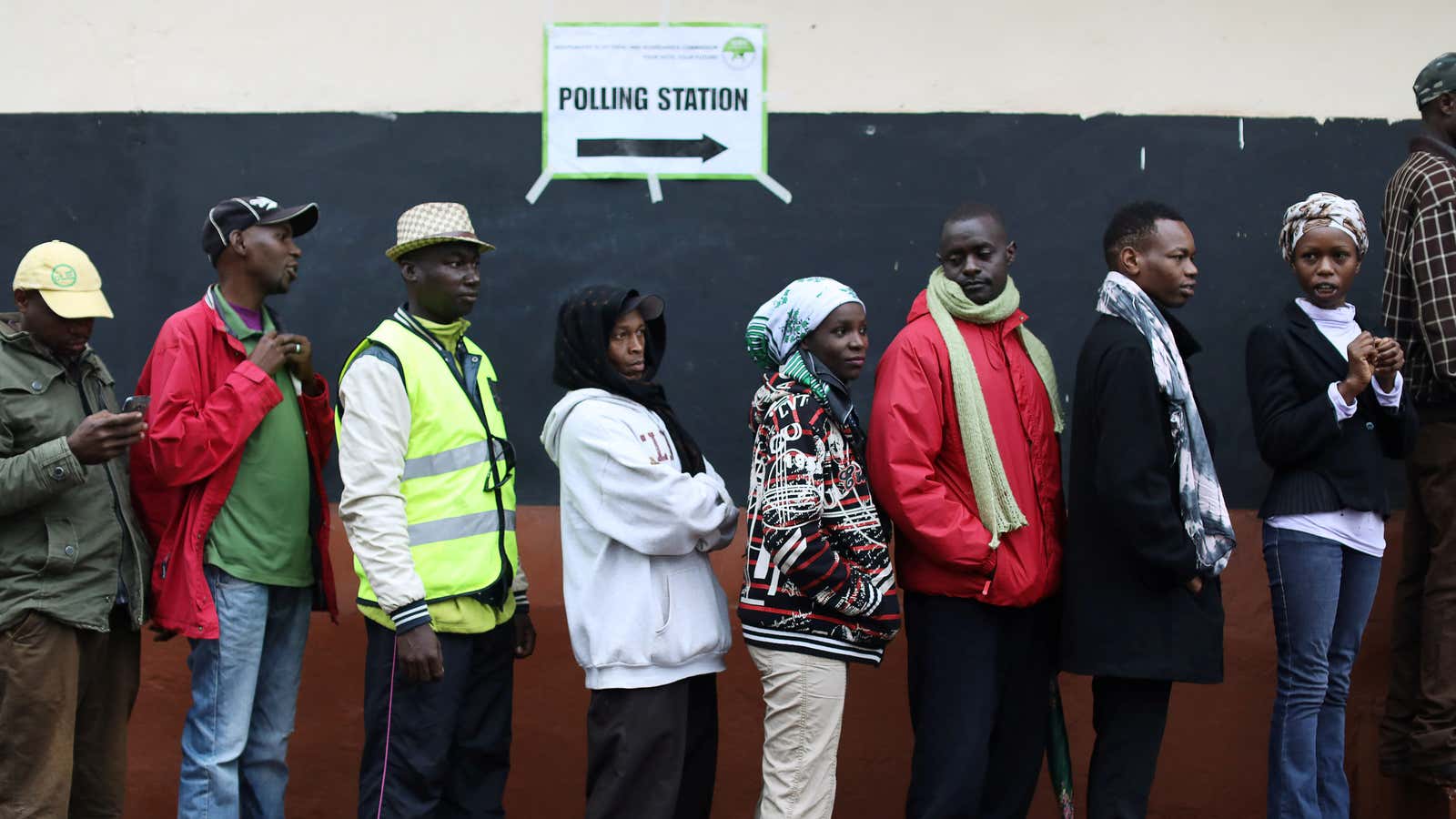Kenya’s repeat presidential election on Oct. 26 was marked by an opposition boycott, protests, looting, arson, and the killing of civilians across the country. The rioters’ running battles with police brought back unpleasant memories of a decade ago when 1,200 Kenyans were killed following a disputed poll. Citing insecurity challenges, the election commission indefinitely postponed voting in four counties—deepening the sense of uncertainty and fear that has pervaded the nation for months now.
And far from being a run-off, the poll has turned into a referendum on Kenya’s young democracy. Election officials said that only one-third of the 19.6 million registered voters cast their ballots—an anemic attendance in a country that prides itself on a high turnout. The indifference was effectively sanctioned by opposition leader Raila Odinga, after he withdrew from the race saying it won’t be free and fair and called for mass civil disobedience.
The electoral commission also didn’t help the situation at hand: its chairman publicly stated that he didn’t know if the poll would be credible. And after spending about $600 million for two elections in 2017, weary Kenyans largely stayed at home instead of, as one voter put it, being “forced into a bus” headed in the wrong direction.
The current tension shows a competitive election alone isn’t the answer to the myriad of problems facing Kenya. After the 2008 post-election violence, Kenyans adopted a new constitution that promised the creation of a more just and peaceful society. Odinga has however accused president Uhuru Kenyatta’s government of using a combination of violence, fraud, and repression to ensure that nothing threatens its grasp on power.
The electoral malaise is also compounded by identity politics, with some ethnic groups feeling both politically and economically marginalized. And even though Kenyatta is expected to be declared winner in this re-run, the fact that two-thirds of the electorate snubbed the election process will raise questions about the legitimacy of his mandate.
Kenya stands at a crossroads—yet again. But the best hope is for the entire country to collectively seek a path out of this crisis: a path where national resources are equally shared, governance is improved, and minorities are protected. As the political analyst Nanjala Nyabola recently said, what’s happening in Kenya should be looked at as a moment of growth. We only need to learn how to “lean into the discomfort.”
